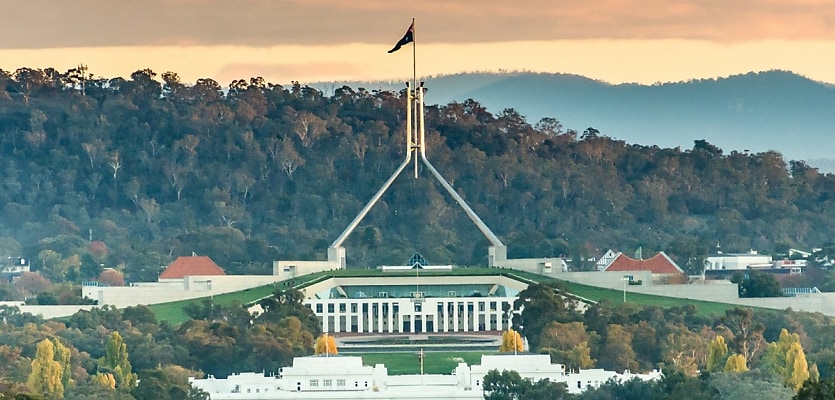The $10 billion fund should be upped to $20 billion to deliver the new homes Australia needs, according to a coalition of housing bodies.
Coming together to release a joint statement, The Property Council of Australia, National Shelter, the Housing Industry Association, the Community Housing Industry Association (CHIA), Australian Council of Social Service (ACOSS), Master Builders Australia, and Homelessness Australia are asking for additional investment in the Housing Australia Future Fund (HAFF) to be included in the next federal budget, due on 14 May 2024.
HAFF, which passed Parliament after lengthy negotiations in September 2023, is a dedicated investment vehicle that provides funding to support and increase social and affordable housing, as well as other acute housing needs across the country.
According to the coalition of housing, property and social service organisations, the government needs to up its investment if it hopes to reach the national target of building 1.2 million new homes by 2029, as agreed to in the National Housing Accord.
With the clock set to start ticking on that promise in July 2024, Property Council chief executive Mike Zorbas said there is “no time to lose. We are at a housing crossroads. The government should double-down on its leadership position and help states and territories speed up planning and housing supply across the board”.
CHIA CEO Wendy Hayhurst added that the nation is at “a critical juncture in addressing the housing crisis in Australia. Doubling the Housing Australia Future Fund would boost revenue to invest in much-needed affordable homes to benefit generations to come”.
National Shelter CEO Emma Greenhalgh acknowledged that the government has made important headway with its initial investment, but stressed the need for more.
“The Prime Minister must bolster his housing agenda to strengthen the delivery of new homes,” she said.
Beyond the additional investment, the alliance has also outlined a series of recommendations, delivered in a letter to Prime Minister Anthony Albanese, that they would like to see included in the forthcoming National Housing and Homelessness plan.
Among them is the suggestion that Commonwealth departments that are involved in any way in the delivery of new homes must remove any barriers that delay or inhibit building.
Master Builders Australia CEO Denita Wawn stressed the importance of smoothing the path for new homes to get off the ground.
“We know one of the biggest handbrakes on housing supply is making it easier for new projects to get the green light by kickstarting private investment and reducing development costs and delays.”
The full set of recommendations are:
- Doubling the Housing Australia Future Fund in the upcoming budget to $20 billion.
- Publishing a draft of the National Housing and Homelessness Plan for further engagement and consultation with the sector.
- Setting targets for both social and affordable housing in the National Housing and Homelessness Plan and reflecting these in the Accord.
- Including the National Housing Supply and Affordability Council in the oversight of the delivery and the reporting of the Accord and the National Housing and Homelessness Plan.
- Establishing transparent and accountable governance arrangements with regular reporting on the progress of the delivery of the Accord and the National Housing and Homelessness Plan, including reporting each six months on barriers to the delivery of homes, and ongoing formal engagement with the sector on the progress of the Accord.
- Requiring Commonwealth departments that touch on any aspect of the delivery of the 1.2 million homes commitment to place the National Housing Accord at the forefront of their policies and programs and remove any barriers that will delay or inhibit the delivery of these homes.
- Holding state and territory governments to account against the National Planning Reform Blueprint.
ABOUT THE AUTHOR
Juliet Helmke
Based in Sydney, Juliet Helmke has a broad range of reporting and editorial experience across the areas of business, technology, entertainment and the arts. She was formerly Senior Editor at The New York Observer.









You are not authorised to post comments.
Comments will undergo moderation before they get published.